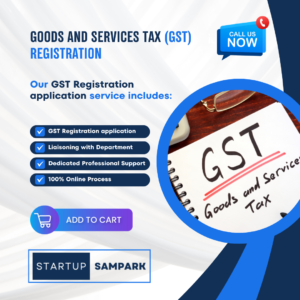Obtaining Necessary Licenses and Permits
Obtaining the necessary licenses and permits is a crucial step for starting and running a business in India. This process ensures that your business complies with local, state, and national regulations, allowing you to operate legally and avoid potential fines or legal issues. The requirements for licenses and permits vary depending on the type of business, its location, and the industry in which it operates. Here’s a comprehensive guide to navigating this important aspect of business registration.
First, it’s essential to understand that the types of licenses and permits required will depend on the nature of your business. For instance, a manufacturing business might need different licenses compared to a retail business or a service provider. Start by identifying the specific regulations and requirements that apply to your industry. This can involve researching industry-specific regulations or consulting with a business advisor or legal professional.
One of the most common licenses required for businesses in India is the Business Registration. This involves registering your business entity with the appropriate authorities, such as the Ministry of Corporate Affairs (MCA) for companies and Limited Liability Partnerships (LLPs), or local municipal authorities for sole proprietorships and partnerships. This registration legitimizes your business and provides you with a unique identification number.
If your business involves food or beverage services, you will need a Food License from the Food Safety and Standards Authority of India (FSSAI). This license ensures that your business adheres to food safety standards and regulations. The process involves submitting an application, undergoing inspections, and meeting specific hygiene and safety standards.
For businesses involved in importing or exporting goods, an Import Export Code (IEC) is necessary. Issued by the Directorate General of Foreign Trade (DGFT), the IEC is required for trading internationally and ensures that your business is compliant with foreign trade regulations.
Goods and Services Tax (GST) Registration is mandatory for businesses whose turnover exceeds the threshold limit set by the government. GST registration allows you to collect and remit GST on sales, and it also enables you to claim input tax credits on business expenses. This registration is done through the GST portal, where you need to submit relevant documents and details about your business.
Businesses engaged in professional services such as legal, accounting, or consulting services may need specific professional licenses or certifications. For instance, lawyers need to be registered with the Bar Council, and accountants require certifications from professional bodies like the Institute of Chartered Accountants of India (ICAI).
If your business involves manufacturing or industrial activities, you will need to obtain an Factory License from the local labor department or other relevant authorities. This license ensures compliance with labor laws, safety regulations, and environmental standards.
For businesses operating in certain regulated sectors like financial services, education, or healthcare, additional licenses or accreditations might be required. For example, financial services firms need licenses from the Securities and Exchange Board of India (SEBI) or the Reserve Bank of India (RBI), while educational institutions need approval from the respective education boards or councils.
Environmental clearances are required for businesses that have an environmental impact, such as those in the manufacturing or construction sectors. These clearances ensure that your business operations do not harm the environment and comply with environmental regulations.
For businesses that plan to operate in specific locations or require special infrastructure, you might need a local municipal license or zoning permit. These permits ensure that your business complies with local zoning laws and land use regulations.
Additionally, some businesses may require health and safety permits depending on their industry. This includes adhering to regulations concerning workplace safety, employee health, and safety equipment.
The process of obtaining these licenses and permits involves several steps, including application submission, document verification, inspections, and approvals. It’s important to keep detailed records of all licenses and permits and ensure they are renewed as required to maintain compliance.
In conclusion, obtaining the necessary licenses and permits is a vital part of starting and running a business in India. It ensures that your business complies with legal and regulatory requirements, protecting you from potential legal issues and enabling you to operate smoothly. By understanding the specific requirements for your industry and diligently following the application process, you can establish a solid foundation for your business and focus on its growth and success.
startup
-
 MSME Registration₹1,180.00
MSME Registration₹1,180.00 -
 GST Registration₹2,360.00
GST Registration₹2,360.00 -
 Trademark Registration₹7,450.00
Trademark Registration₹7,450.00

















Post Comment